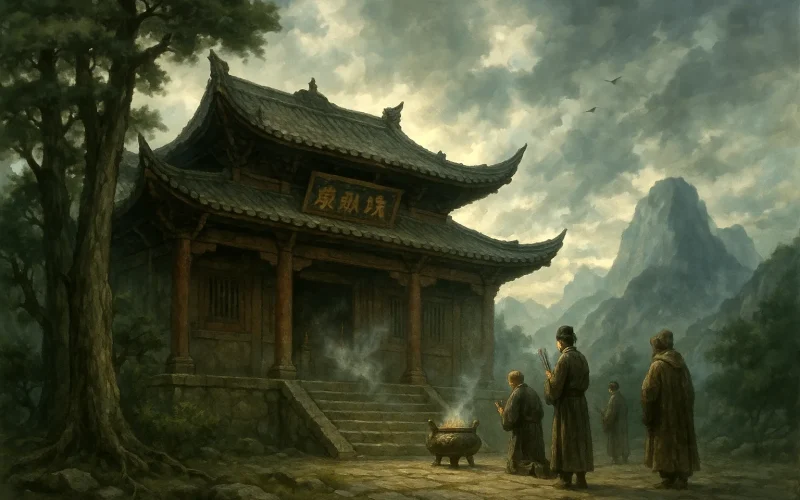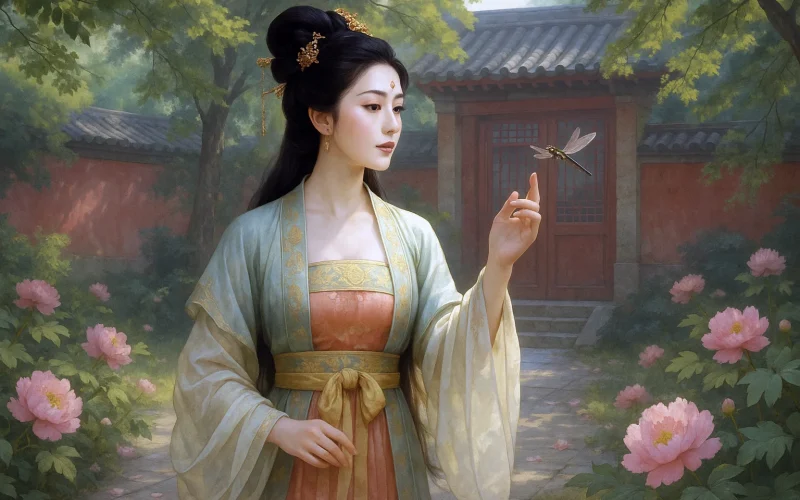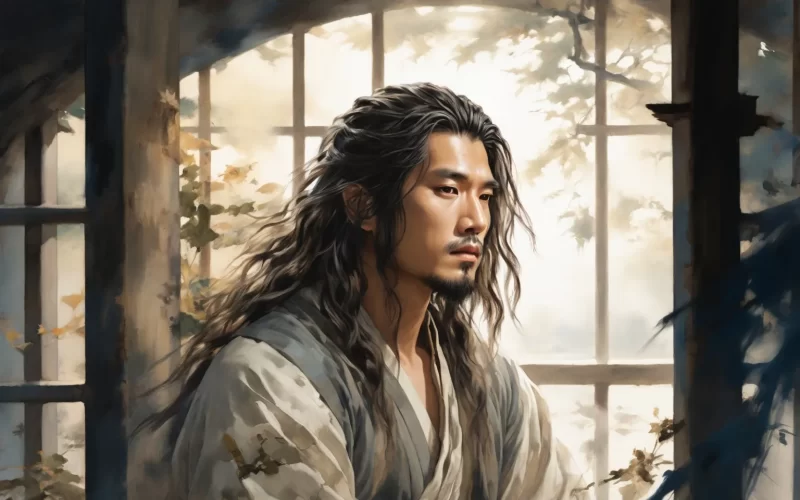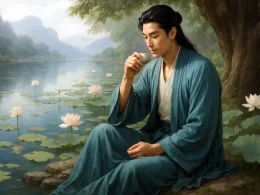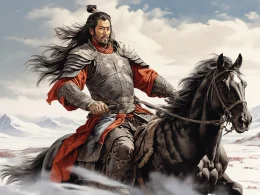Even in this world the spirit of a hero
Lives and reigns for thousands of years.
You were the firmest of the pot's three legs;
It was you who maintained the honour of the currency;
You chose a great premier to magnify your kingdom...
And yet you had a son so little like his father
That girls of your country were taken captive
To dance in the palace of the King of Wei.
Original Poem
「蜀先主庙」
刘禹锡
天地英雄气,千秋尚凛然。
势分三足鼎,业复五铢钱。
得相能开国,生儿不象贤。
凄凉蜀故妓,来舞魏宫前。
Interpretation
Composed around 817 AD when Liu Yuxi served as prefect of Kuizhou, this poem was inspired by his visit to the Temple of Shu's Founding Emperor. Written during the Tang Dynasty's decline marked by political corruption and suppression of reformers, the work ostensibly commemorates Liu Bei of Shu Han while subtly critiquing contemporary misrule. Through historical allusion, Liu Yuxi expresses reverence for heroic figures alongside profound condemnation of unworthy successors, creating layered political commentary.
First Couplet: 天地英雄气,千秋尚凛然。
Tiāndì yīngxióng qì, qiānqiū shàng lǐnrán.
Heroic aura fills heaven and earth / Through millennia still commands awe and worth
The majestic opening establishes vast temporal-spatial dimensions for evaluating heroism. The phrasing echoes Cao Cao's famous recognition of Liu Bei as peerless hero ("The only heroes under heaven are you and I"), demonstrating the poet's deep admiration for Liu Bei's character and legacy.
Second Couplet: 势分三足鼎,业复五铢钱。
Shì fēn sān zú dǐng, yè fù wǔzhū qián.
Three-legged cauldron marked divided reign / Five-zhu coin restored Han's domain
Developing the "heroic aura" theme, this couplet encapsulates Liu Bei's historical achievement. The tripod symbolizes the Three Kingdoms equilibrium, while the Han-era coin represents his restorationist ideals, together portraying his visionary leadership during turbulent times.
Third Couplet: 得相能开国,生儿不象贤。
Dé xiàng néng kāi guó, shēng ér bú xiàng xián.
With sage minister, a kingdom rose / Yet sired an heir who virtue froze
The tragic reversal: Liu Bei's success in founding Shu with Zhuge Liang's assistance contrasts sharply with his incompetent successor Liu Shan. This juxtaposition underscores the historical lesson that maintaining achievements proves harder than establishing them.
Fourth Couplet: 凄凉蜀故妓,来舞魏宫前。
Qīliáng Shǔ gù jì, lái wǔ Wèi gōng qián.
Shu's court musicians now forlorn / Dance in Wei's halls, their homeland torn
The devastating conclusion depicts conquered Shu entertainers performing for their Wei captors, embodying the ultimate humiliation of defeat. This image of cultural subjugation intensifies the critique of Liu Shan's failures while resonating with Tang contemporaries about the costs of misgovernment.
Holistic Appreciation
The poem progresses with architectural precision from heroic invocation to tragic denouement. Beginning with cosmic-scale praise of Liu Bei's enduring spirit, it systematically examines his achievements before revealing their unraveling through unworthy succession. The movement from triumphalism to lament creates powerful historical irony, using the Shu Han narrative to reflect on cyclical patterns of rise and decline. Liu Yuxi's masterful compression of complex history into twenty characters demonstrates his ability to balance scholarly allusion with emotional depth.
Artistic Merits
- Structural Rigor: The four couplets form a complete historical argument - thesis (heroism), evidence (achievements), reversal (failure), consequence (humiliation)
- Allusive Density: Each image (tripod, coin) carries multiple historical and symbolic meanings
- Contrapuntal Diction: Juxtaposition of "sage minister" with "unvirtuous son" heightens tragic effect
- Political Resonance: Surface praise of Liu Bei thinly veils critique of contemporary Tang leadership
Insights
This medieval poem speaks urgently to modern concerns about leadership succession and institutional preservation. Liu Yuxi's dissection of Shu Han's collapse warns that even magnificent beginnings guarantee nothing without sustained excellence in governance. The work particularly cautions against the "founder's curse" - when visionary leaders are succeeded by mediocrities. For contemporary readers, it suggests that true respect for predecessors requires not just commemoration but the cultivation of worthy successors who can sustain their legacy against evolving challenges.
Poem translator
Kiang Kanghu
About the poet
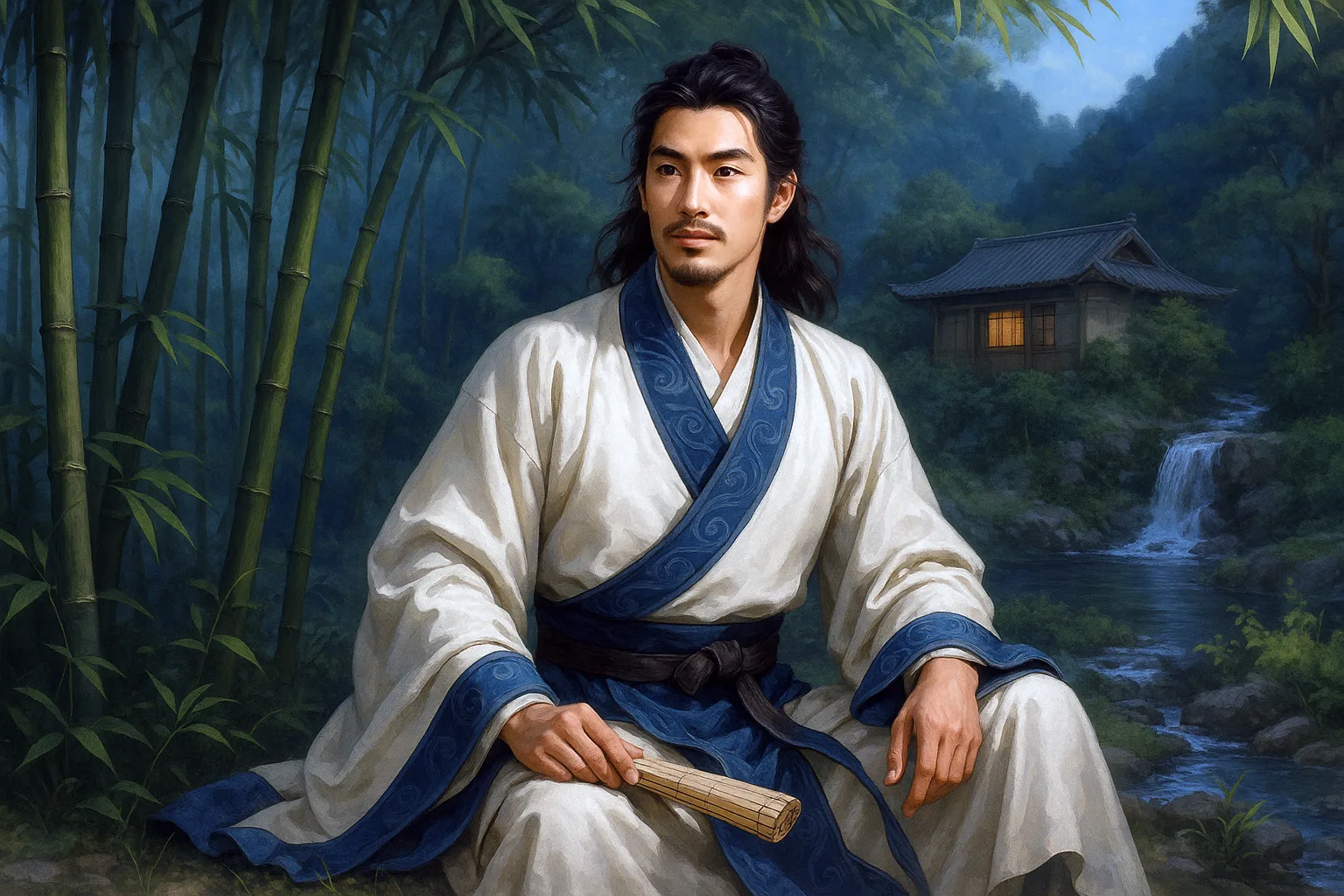
Liu Yuxi(刘禹锡), 772 - 842 AD, was a native of Hebei. He was a progressive statesman and thinker in the middle of the Tang Dynasty, and a poet with unique achievements in this period. In his compositions, there is no lack of poems reflecting current affairs and the plight of the people.






